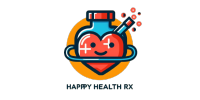Introduction
Welcome to our blog post on the revolutionary trends in pharmacy care. In today’s fast-paced world, technology and personalization are playing a crucial role in shaping the future of healthcare. In this article, we will explore five key trends that are transforming the way we receive and manage our medications. From online pharmacies to personalized medicine, these advancements are revolutionizing pharmacy care and improving the overall health and well-being of individuals.
One of the most significant trends in pharmacy care is the rise of telepharmacy. Telepharmacy involves the use of technology to provide pharmaceutical care remotely. This allows patients to consult with pharmacists and receive medication counseling without having to physically visit a pharmacy. With the advent of telecommunication technologies, patients can now access pharmacy services from the comfort of their own homes, saving time and effort.
Another trend that is reshaping pharmacy care is the integration of artificial intelligence (AI) and machine learning. AI-powered systems can analyze vast amounts of patient data and provide personalized medication recommendations. These systems can identify potential drug interactions, suggest alternative medications, and even predict adverse reactions. By harnessing the power of AI, pharmacists can provide more accurate and efficient care, reducing the risk of medication errors and improving patient outcomes.
Furthermore, the emergence of personalized medicine is transforming the way medications are prescribed and administered. Personalized medicine takes into account an individual’s unique genetic makeup, lifestyle, and medical history to tailor treatment plans to their specific needs. This approach allows for more targeted therapies, minimizing side effects and maximizing efficacy. Pharmacists now have access to genetic testing and other diagnostic tools that enable them to provide personalized medication recommendations, ensuring that patients receive the most effective treatment for their conditions.
In addition to these technological advancements, the role of pharmacists is also evolving. Pharmacists are no longer just dispensers of medications; they are now recognized as vital members of the healthcare team. They play an active role in medication therapy management, collaborating with other healthcare professionals to optimize treatment outcomes. Pharmacists are also involved in patient education, providing information on medication adherence, lifestyle modifications, and disease prevention. Their expertise and accessibility make them valuable resources for patients seeking comprehensive healthcare.
Lastly, the rise of online pharmacies has revolutionized the way we access and purchase medications. Online pharmacies offer convenience and accessibility, allowing individuals to order their medications from anywhere at any time. They often provide competitive pricing and home delivery options, making it easier for patients to adhere to their prescribed treatment plans. However, it is essential to ensure the legitimacy and safety of online pharmacies, as there are risks associated with counterfeit or substandard medications.
In conclusion, the revolutionary trends in pharmacy care are transforming the healthcare landscape. Telepharmacy, AI integration, personalized medicine, the evolving role of pharmacists, and the rise of online pharmacies are all contributing to improved patient care and outcomes. As technology continues to advance, we can expect further innovations in pharmacy care that will enhance the quality of healthcare and empower individuals to take control of their health.
1. Online Pharmacies
One of the most significant trends in pharmacy care is the rise of online pharmacies. With the convenience of the internet, people can now order their medications from the comfort of their own homes. Online pharmacies offer a wide range of benefits, including:
- Convenience: No more waiting in long lines at the local pharmacy. With online pharmacies, you can order your medications with just a few clicks.
- Accessibility: Online pharmacies are accessible 24/7, allowing you to order your medications at any time that suits you.
- Privacy: Some individuals may feel uncomfortable discussing their health conditions in a public setting. Online pharmacies provide a discreet and confidential way to order medications.
- Price Comparison: Online pharmacies often offer competitive prices, allowing you to compare different options and choose the most affordable one.
- Expert Consultation: Many online pharmacies have licensed pharmacists available for consultation. Through chat or email, you can ask questions, seek advice, and get personalized recommendations.
- Medication Information: Online pharmacies provide detailed information about medications, including dosage instructions, potential side effects, and drug interactions. This empowers patients to make informed decisions about their healthcare.
- Automatic Refill Reminders: Online pharmacies often offer automatic refill reminders, ensuring that you never run out of your essential medications. This feature is especially beneficial for individuals with chronic conditions.
- Home Delivery: Online pharmacies typically offer home delivery services, saving you the hassle of going to the pharmacy and ensuring that you receive your medications right at your doorstep.
- Wide Range of Products: Online pharmacies usually have a vast inventory of medications, including both prescription and over-the-counter drugs. This allows you to find all your healthcare needs in one place.
As technology continues to advance, we can expect online pharmacies to become even more prevalent in the future. With their numerous advantages, they are revolutionizing the way people access and manage their medications, providing a convenient and efficient alternative to traditional brick-and-mortar pharmacies.
2. Telepharmacy
Telepharmacy is another revolutionary trend that is transforming pharmacy care. With telepharmacy, individuals can consult with pharmacists remotely, using video conferencing or telephone calls. This trend offers several advantages:
- Accessibility: Telepharmacy brings pharmacy services to individuals who may have limited access to healthcare facilities, such as those living in rural areas. This is especially important for people who may have difficulty traveling long distances to visit a pharmacy or who may not have transportation available to them. Telepharmacy eliminates these barriers and ensures that everyone has access to the medications and healthcare services they need.
- Medication Management: Pharmacists can provide medication counseling and answer any questions or concerns individuals may have about their medications. Through telepharmacy, pharmacists can review medication regimens, identify any potential drug interactions or side effects, and provide personalized recommendations to optimize medication therapy. This level of support and guidance is crucial in ensuring that individuals are taking their medications correctly and safely.
- Medication Adherence: Telepharmacy can help improve medication adherence by providing individuals with the necessary information and support to take their medications as prescribed. Pharmacists can use telepharmacy to conduct medication therapy management (MTM) sessions, where they can discuss medication schedules, potential barriers to adherence, and strategies to overcome them. By addressing any concerns or challenges individuals may have, telepharmacy can significantly enhance medication adherence rates and improve overall health outcomes.
- Chronic Disease Management: For individuals with chronic conditions, telepharmacy can play a vital role in managing their medications and overall health. Through regular telepharmacy consultations, pharmacists can monitor medication effectiveness, adjust dosages as needed, and provide ongoing support and education. This proactive approach to chronic disease management can help individuals better control their conditions, prevent complications, and improve their quality of life.
Telepharmacy is particularly beneficial during times when in-person visits may be challenging, such as during a pandemic or natural disaster. It allows individuals to receive the care they need without leaving their homes. Additionally, telepharmacy can help alleviate the burden on healthcare facilities by reducing the number of in-person visits and freeing up resources for more urgent cases. Overall, telepharmacy is revolutionizing pharmacy care by providing convenient, accessible, and personalized services to individuals regardless of their location or circumstances.
3. Personalized Medicine
Personalized medicine is revolutionizing the way medications are prescribed and administered. Rather than a one-size-fits-all approach, personalized medicine takes into account an individual’s unique genetic makeup, lifestyle, and medical history to tailor treatment plans specifically to them. This trend offers several advantages:
- Improved Efficacy: By considering an individual’s specific characteristics, personalized medicine can increase the effectiveness of treatments. For example, if a patient has a genetic predisposition to a certain disease, personalized medicine can identify targeted therapies that are more likely to be successful in treating that particular condition. This not only improves the patient’s chances of a positive outcome but also reduces the need for trial and error in finding the right treatment.
- Reduced Side Effects: Personalized medicine aims to minimize the risk of adverse reactions by selecting medications that are well-suited to an individual’s genetic profile. This means that patients are less likely to experience negative side effects that can occur when a medication is not compatible with their unique biology. By reducing the occurrence of side effects, personalized medicine can improve patient compliance and overall treatment outcomes.
- Optimized Dosage: Personalized medicine helps determine the most appropriate dosage for an individual, maximizing the benefits of the medication while minimizing potential harm. By taking into account factors such as a patient’s metabolism, liver function, and genetic variations that affect drug metabolism, personalized medicine can ensure that patients receive the right amount of medication for their specific needs. This can help avoid underdosing, which may render the treatment ineffective, or overdosing, which can lead to toxicity or other complications.
- Prevention and Early Detection: Personalized medicine can also be used to identify individuals who may be at a higher risk of developing certain conditions, allowing for preventive measures or early intervention. By analyzing an individual’s genetic markers, lifestyle factors, and medical history, personalized medicine can identify individuals who are more susceptible to certain diseases. This knowledge can be used to implement targeted preventive strategies such as lifestyle modifications, regular screenings, or even genetic testing to detect the presence of disease at an early stage when it is most treatable.
As technology continues to advance, personalized medicine will become increasingly accessible and affordable, revolutionizing the way we approach healthcare. With the advent of techniques like next-generation sequencing and the increasing availability of electronic health records, healthcare providers will have more comprehensive data to inform personalized treatment decisions. Additionally, ongoing research and collaboration between scientists, clinicians, and pharmaceutical companies will continue to expand our understanding of the genetic and molecular basis of diseases, further enhancing the potential of personalized medicine. As personalized medicine becomes more integrated into routine clinical practice, it has the potential to transform healthcare by improving patient outcomes, reducing healthcare costs, and ultimately saving lives.
4. Medication Management Apps
In today’s digital age, medication management apps are becoming increasingly popular. These apps help individuals keep track of their medications, set reminders for when to take them, and provide valuable information about potential side effects and interactions. With the advancement of technology, medication management apps have evolved to offer a wide range of features that cater to the specific needs of users.
One of the key features of medication management apps is medication reminders. These reminders are designed to ensure that individuals never forget to take their medications again. Whether it’s a simple notification on their phone or a reminder on their smartwatch, these apps provide timely alerts to help users stay on track with their treatment plan. By eliminating the risk of missed doses, medication management apps contribute to better adherence and overall health outcomes.
Another important feature offered by medication management apps is refill notifications. Running out of medications can be a hassle, especially when it comes to chronic conditions that require ongoing treatment. Medication management apps can notify users when it’s time to refill their prescriptions, saving them time and effort. By keeping track of medication supply and facilitating timely refills, these apps help individuals avoid interruptions in their treatment regimen.
Moreover, medication management apps often include an interaction checker. It’s essential to be aware of any potential interactions between medications, as they can have adverse effects on health. These apps can flag potential issues and provide guidance on how to avoid them. By analyzing the user’s medication list and cross-referencing it with a comprehensive database, these apps offer valuable insights into potential drug interactions, empowering individuals to make informed decisions about their healthcare.
Additionally, some medication management apps allow users to store their health records. This feature comes in handy when individuals need to share information with healthcare providers. By having their health records easily accessible on their smartphones, users can provide accurate and up-to-date information to their doctors, leading to more effective and personalized care.
In conclusion, medication management apps have revolutionized the way individuals manage their medications. With features such as medication reminders, refill notifications, interaction checkers, and health records storage, these apps empower individuals to take control of their healthcare. By ensuring medication adherence and providing valuable information, medication management apps contribute to improved health outcomes and overall well-being.
5. Robotic Dispensing Systems
Robotic dispensing systems are revolutionizing the way medications are dispensed in pharmacies. These automated systems can accurately and efficiently count, label, and package medications, reducing the risk of human error. Some advantages of robotic dispensing systems include:
- Accuracy: Robots are less likely to make errors when counting and packaging medications, ensuring individuals receive the correct dosage. This is especially crucial when dealing with high-risk medications or complex dosage regimens. The precision of robotic dispensing systems eliminates the possibility of human errors, such as miscounting or mislabeling, which can have severe consequences for patients.
- Efficiency: Robotic dispensing systems can handle a high volume of prescriptions, reducing waiting times and improving overall pharmacy workflow. With their high-speed capabilities, these systems can process multiple prescriptions simultaneously, significantly increasing the efficiency of medication dispensing. This allows pharmacists to focus more on patient care and counseling, rather than spending excessive time on manual dispensing tasks.
- Inventory Management: Robots can track medication inventory, making it easier for pharmacies to manage stock levels and ensure medications are always available. By constantly monitoring stock levels and expiration dates, robotic dispensing systems can automatically reorder medications when needed, minimizing the risk of stockouts and reducing waste. This streamlines the inventory management process for pharmacies, saving time and resources.
- Improved Safety: By minimizing the risk of human error, robotic dispensing systems enhance patient safety and reduce the likelihood of medication-related incidents. The advanced technology and built-in safety features of these systems help prevent medication mix-ups, cross-contamination, and dosage errors. Additionally, robotic dispensing systems can integrate with electronic health records (EHRs) and other pharmacy software, allowing for real-time medication verification and ensuring that patients receive the correct medications and dosages.
Robotic dispensing systems are becoming increasingly common in pharmacies, allowing pharmacists to focus more on patient care and counseling. The integration of these advanced technologies not only improves the accuracy and efficiency of medication dispensing but also enhances patient safety and overall pharmacy operations. As the demand for healthcare services continues to grow, robotic dispensing systems will play a vital role in optimizing pharmacy workflows and delivering high-quality patient care.



